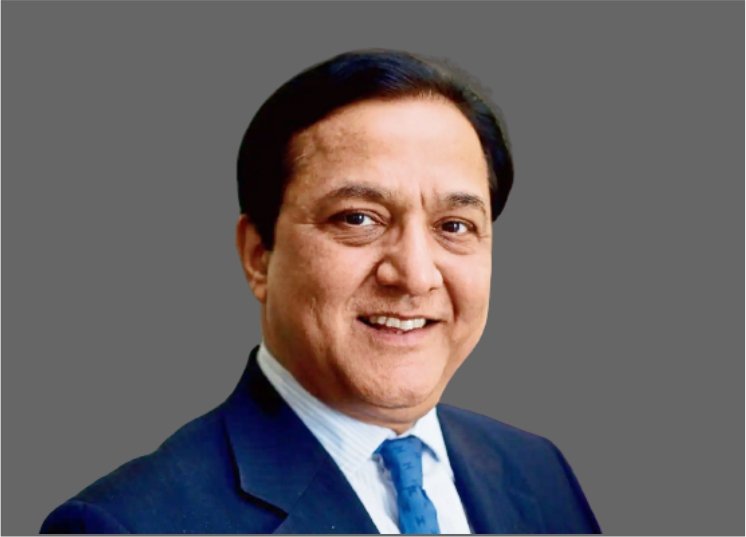By Asish K Bhattacharyya
Madhu Kapur, widow of Ashok Kapur, a co-promoter of YES Bank, had sought a representation in the board of the company and nominated her daughter Shagun Gogia for representing her. At present Madhu Kapur has 12 per cent stake in the bank and Rana Kapoor, CEO and MD, who is also the co-promoter of the bank, has 13.72 per cent stake.
Madhu Kapur’s claim is quite legitimate. It is not unusual that a shareholder holding a block of shares seeks representation in the board to enable him/her to understand the internal working of the company and participate in boardroom deliberations. Good corporate governance requires that a block holder and other non-controlling shareholders should have representation in the board.
The board, after due diligence, rejected the recommendation of Madhu Kapur. The company has cited two reasons. First, as Bindu Kapoor, wife of Rana Kapoor, and Madhu Kapur are sisters, induction of Madhu Kapur’s daughter would violate the RBI guidelines, which stipulate that it is a desirable practice not to have more than one of a family or close relatives or associates in the board. The second reason is that Shagun Gogia does not meet the ‘fit and proper’ criteria, because her experience is much shorter than the average experience of the board and she never participated in policy making and mentoring in large and successful companies.
Guidelines that codify desirable practices do not enjoy the same status as that of regulations. Regulations cannot be violated in any situation. Such guidelines should generally be followed, but deviation in special circumstances is not an offence.
Shagun Gogia is a double major in economics and biology from Tufts University and an MBA from the Indian School of Business, Hyderabad. She has significant experience of working in the finance sector, although at the middle level. She had demonstrated her entrepreneurial skills in founding and managing Tuscan Ventures, a PE fund that invests in logistic business. Yet her candidature could not meet the ‘fit and proper’ criteria established by the bank. Boards require flexibility in developing selection criteria, as one set of criteria does not fit all. Even for the same company, criteria need revision periodically based on the skills, knowledge and experience needed in the board at a particular point in time to take advantage of emerging opportunities or to deal with potential threats.
Moreover, evaluation of candidature is often judgemental. For example, assessment of the ethical value of a candidate is not as black and white as it appears. It is unfair to question the board’s decision. The dark side of this desirable flexibility is that it gives an opportunity to independent directors to gang up with the CEO to block the appointment of a right candidate. The Companies Bill 2012 provides that a listed company may have one director elected by small shareholders. The incumbent management has ample scope to block the induction of the right candidate and get its planted nominee elected as a representative of small shareholders Thus, it can defeat the very objective of the provision.
Induction of Shagun Gogia is a trivial matter for investors. At this point in time the decision of the board will not impact the operation of the bank. But the issue brings out the peril of establishing ‘fit and proper’ criteria by a regulator. This might lead to unnecessary litigation. Madhu Kapur has challenged the appointment of three directors, as they are not within the age group stipulated in RBI guidelines. Moreover, by establishing the ‘fit and proper’ criteria, the regulator takes away the most desirable flexibility to the board in establishing its own criteria.
When a regulator endeavours to establish ‘fit and proper’ criteria, it finds it difficult to identify the right benchmark. The board process is a cerebral process. In the absence of a mandatory retirement age for professors, in Ivy League institutions in USA (e.g. Harvard University), many academics hold the position till the age of 80 and continue to guide and mentor students in research. There is no reason to believe that an individual who enjoyed a good living during his/her active career loses his/her cerebral faculty at the age of 65.
The YES Bank saga reflects the attitude and approach of business leaders. They use regulations to their advantage undermining the spirit of the same. It also reflects that regulators in their zeal to regulate the sector for the benefit of stakeholders introduce some regulations that hurt them.
About the Author
Affiliation: Professor and Head, School of Corporate Governance and Public Policy, Indian Institute of Corporate Affairs; Advisor (Advanced Studies), Institute of Cost Accountants of India; Chairman, Riverside Management Academy Private Limited























